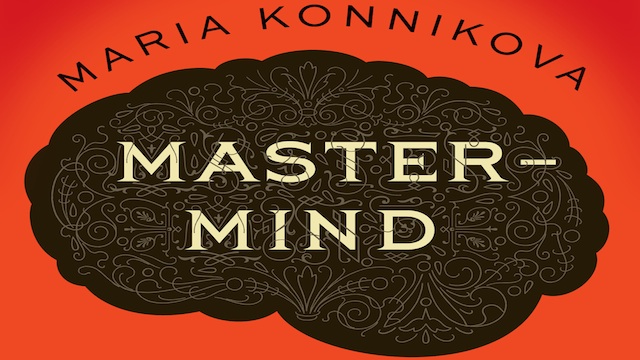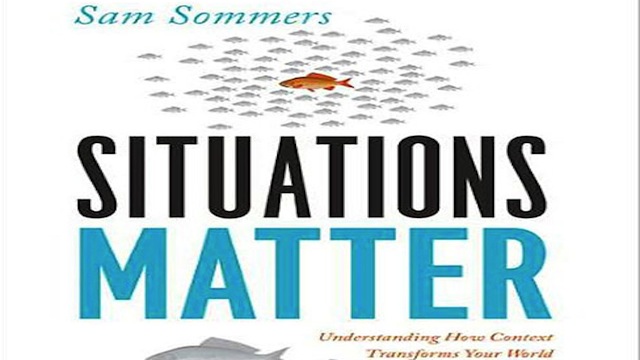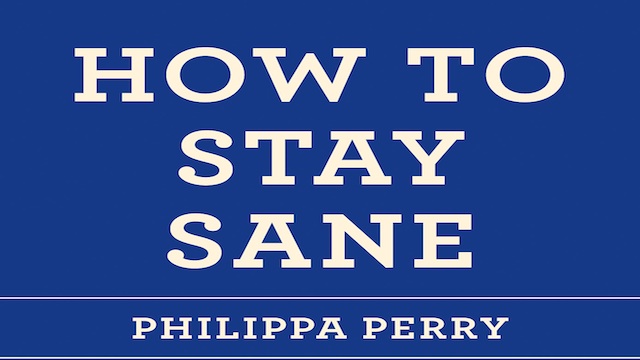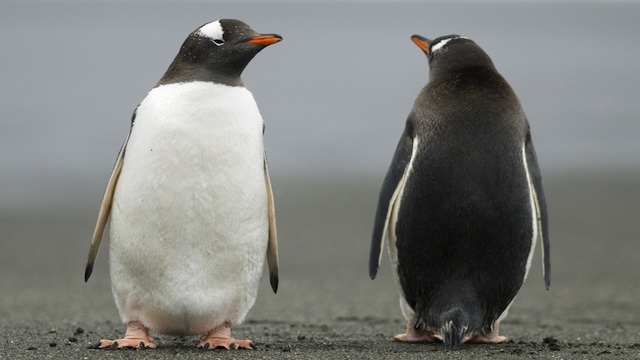Sam McNerney
Science writer
I graduated from Hamilton College with a degree in Philosophy. Now I write about philosophy (mostly epistemology) and psychology (mostly decision making and well-being) at Scientific American and Big Think. My personal blog is SamMcNerney.com. @SamMcNerney.
The gap between invention and implementation is beset by a bias: when in doubt we prefer the status quo, even when solutions to deficiencies are apparent. Is it any wonder […]
What happens when you ban a book? Sales increase. The modern maxim that any press is good press is true. If you really want people to read a book, tell […]
A centerpiece of Mastermind is that the brain operates using two contrasting systems, which Konnikova terms System Holmes and System Watson.
Individuals’ personalities – yours and mine included – are not as stable as we think they are.
We pay special attention to the history of an object – where it has been, who created it, what touched it – because object’s history is what really matters when it comes to its value.
Philippa Perry is a British psychotherapist and writer. She is also the author of How To Stay Sane, a charming new book and a recent edition to The School of […]
The neuroscience of creativity is flourishing. But will the popularity of this subject lead to better, or sloppier science?
If art is designed to provoke the passions, it does not confine itself to the pleasant ones.
Swamped this week. Here’s a post originally published on my personal blog to fill the void. Like many features of the human condition, the first psychological account of disgust comes […]
In 1975, rock legend Lou Reed released an album entitled Metal Machine Music. The album consists of no songs, no lyrics and is entirely devoid of melody and rhythm. Instead, […]
Imagine that you are making your way through a dense jungle. Thick vegetation makes it difficult to see more than few feet in front of you. Suddenly, you break through […]
The guile of Girl Talk, to paraphrase a Times article, is its appeal to the ironically inclined. Crunk rap or heavy metal are too lowbrow for the hipster. Not so […]
“Hello China!…… there are just so many of you.” Stefani Germanotta, better known by her Queen-inspired moniker, Lady Gaga, made that appeal to 15,000 screaming teenage Chinese girls in a […]
The first time I listened to Pinkerton, Weezer’s second studio album, I hated it. And so did almost everyone else. Rolling Stone readers ranked it as the third worst album […]
Several years ago Vitaly Komar and Alexander Melamid teamed with violinist, composer and neuroscientist Dave Soldier to explore popular music preferences in the United States. They determined what music people […]
Decades of research suggest that we are not only initially attracted to likeminded people but that familiarity is essential for healthy marriage.
The Bulwer-Lytton Fiction Contest is an annual competition created by Scott E. Rice, Professor of English at San Jose State University, in which participants are invited “to compose the opening […]
Some research proposes that sorrow in fiction might be a form of psychological relief. A more fruitful explanation is that important virtues, values and morals that elicit uplifting emotions accompany sad moments in fiction.
What hasn’t been said about Louis C.K.? The New York Times called him a “comedic Quentin Tarantino.” Writing for the Los Angeles Book Review Adam Wilson said he was “television’s […]
Cognitive science exists in a golden era. The amount of resources pouring into research that examines human nature is unmatched by any other time in history.
Willpower is a limited resource easily drained by everyday activity.
One paradox of creativity is that it’s restricted by the senses. The eyes and visual cortex perceive a narrow slice of the electromagnet spectrum. Our sense of taste and smell […]
By the time he put the finishing touches on the Rite of Spring in November of 1912 in the Châtelard Hotel in Clarens, Switzerland, Stravinsky had spent three years studying Russian pagan […]
The “endowment effect” explains our irrational tendency to overvalue something just because we own it.
A few months ago I reported on a 2009 study out of the Kellogg School of Management by William Maddux and Adam Galinsky. Through a series of five studies Maddux […]
“[T]he Author of Nature has determin’d us to receive… a Moral Sense, todirect our Actions, and to give us still nobler Pleasures.” That appeal was made in 1725 by Scottish philosopher […]
Stories from scientists, dream clubs and even people who have committed crimes while sleepwalking.
One of the hallmarks of a good story is the element of surprise. A good story leads us down a path of expectations, slowly building tension until an unexpected plot […]
Sometime in 1952, the American experimental musician John Cage put the finishing touches on a composition that challenged the definition of music. It was a three-part movement written for any […]
For a long time people thought that the self was unified and eternal. It’s easy to see why.





























